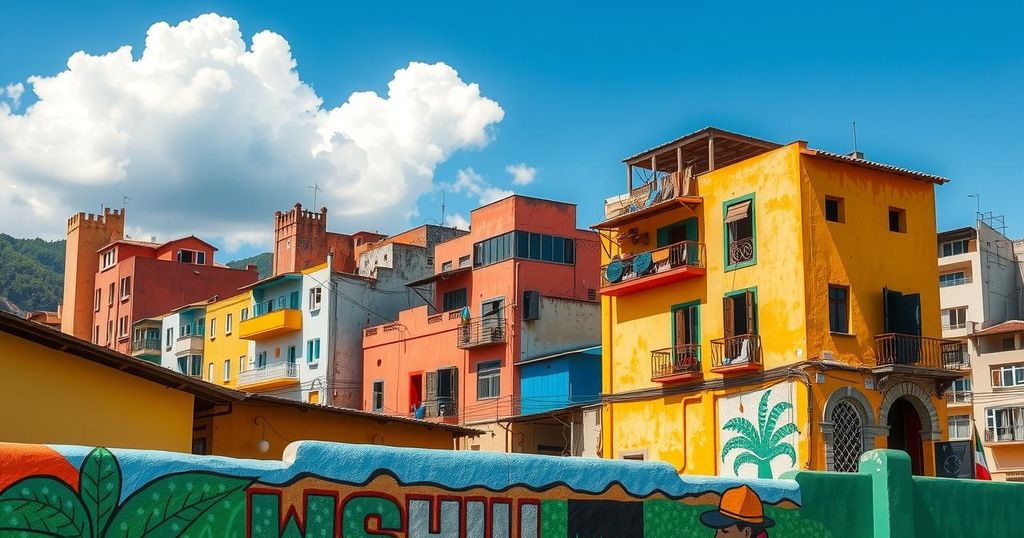Crime
ASIA, AURORA, BERNAL, CRIME, DENVER, DEPORTATION, DRUG TRAFFICKING, FBI, IMBURG, IMBURGIA, IMMIGRATION AND CUSTOMS ENFORCEMENT, JAPAN, JEFFERSON, JEFFERSON JOSE, JEFFERSON JOSÉ, JEFFERSON JOSÉ LAYA FREITES, JOSE LAYA FREITES, JOSEPH IMBURGIA, LAW ENFORCEMENT, LAY, LAYA FREITES, MONEY LAUNDERING, MONIQUE SHERMAN, NORTH AMERICA, TANG, TANGA BERNAL, TEXAS, TRUMP, U. S, U. S. IMMIGRATION AND CUSTOMS ENFORCEMENT, UNITED STATES, USA, USA TODAY
Oliver Grayson
0 Comments
Concerns Grow Over Deportation of Venezuelan Migrants to El Salvador Due to Tattoos
This article examines the troubling deportation of Venezuelan migrants to El Salvador under the Trump administration’s policies, highlighting individual cases such as Jefferson José Laya Freites and Franco José Caraballo. Many detainees are sent based on tattoos rather than actual gang affiliation, raising significant human rights concerns. Advocates stress the need for due process and challenge the narratives used to justify these deportations, while families seek justice in response to these injustices.
In Aurora, Colorado, an immigration judge, Joseph Imburgia, faced a disturbing situation when Venezuelan migrant Jefferson José Laya Freites failed to appear for his asylum hearing. His attorney reported that Laya Freites had been transferred to Texas after a traffic stop and subsequently sent to a notorious prison in El Salvador under a deal signed by the Trump administration, raising concerns about the treatment of detainees.
Families of affected migrants, including Laya Freites, allege that individuals are being deported based on tattoos, which symbolize familial connections or personal memories, rather than any affiliation with gangs. Despite the Trump administration’s claims that many deportees are members of the violent Venezuelan gang Tren de Aragua, evidence suggests otherwise, with law enforcement indicating a much smaller gang presence.
Laya Freites and others like him, who sought asylum due to the dire conditions in Venezuela, found themselves detained despite holding valid work authorizations. His wife reported seeing him on video from a Salvadoran prison, expressing her disbelief given that he has no gang tattoos.
The situation is emblematic of broader issues facing Zimbabwean asylum seekers, as attorney Monique Sherman pointed out, “This is a human rights injustice.” Additionally, the case of Franco José Caraballo illustrates that his tattoos, including significant personal symbols like a stopwatch representing the birth of his daughter, led to his wrongful detention and deportation.
Moreover, the considerable influx of Venezuelans fleeing their country due to violence and repression, totaling over 760,000 since 2021, adds urgency to calls for fair treatment by U.S. immigration authorities. Legal experts and advocates are alarmed by the lack of transparency and accountability in deportation procedures, particularly concerning the use of the Trump-era Alien Enemies Act to expedite removals without due process.
Tren de Aragua, while identified in connection with criminal activities, is deemed by experts to be a nascent group lacking the significant infrastructure of more established criminal organizations. Despite this, deportations continue unabated, often justified by the narrative of combating gang violence, and many of those affected had never encountered criminal allegations prior to their arrests.
As legal battles unfold, families remain uncertain, with some migrants reporting coercion and misleading information during the deportation processes. Activists continue to push for justice, insisting that the stories of these individuals, marked by cultural symbols rather than criminal ties, receive the necessary attention and protection under the law.
The situation of Venezuelan migrants being forcibly deported to El Salvador places a spotlight on the intersection of immigration law and human rights concerns. Families are reporting that these deportations are unjustly based on tattoos, which do not accurately reflect gang affiliations. Legal advocates emphasize the urgency for due process and a re-examination of policies that allow deportation without adequate evidence. This issue highlights the need for transparent immigration practices that honor the rights of individuals seeking asylum. Overall, it is vital to recognize these injustice stories and advocate for the end of punitive measures targeting refugees escaping violence and political repression in their home countries.
Original Source: www.usatoday.com




Post Comment